$299.99
Spiny Turtle for Sale a gorgeous reptile with a unique shell shape. Buy a spiny turtle and set up the perfect terrarium for their water and Land.
Category: TURTLES FOR SALE
Spiny Turtle For Sale : A Unique and Fascinating Species for Your Collection
The **Spiny Turtle** (*Heosemys spinosa*), known for its distinct appearance and spiked shell, is one of the most captivating and unique turtle species you can own. Native to the tropical rainforests of Southeast Asia, these turtles have become a favorite among reptile enthusiasts because of their striking look and manageable size. If you’re interested in adding one of these incredible creatures to your collection, you may be on the lookout for a **spiny turtle for sale**. This guide will provide everything you need to know about spiny turtles, including their natural habitat, care requirements, and where to **buy spiny turtles online**.
What Is a Spiny Turtle for sale?
The spiny turtle for sale gets its name from the sharp, spike-like protrusions that line the edges of its shell. These spines are especially prominent in younger turtles and serve as a defense mechanism in the wild, helping them deter predators. As the turtle ages, these spines become less pronounced, but the turtle’s shell always retains a rugged, textured look.
Spiny turtles typically grow to about 8-10 inches in length, making them a medium-sized turtle species. They are semi-terrestrial, which means they spend time both on land and in water, though they lean more towards land-based activity compared to fully aquatic turtles.
Appearance and Unique Features on spiny turtle for sale
The spiny turtle’s rugged look, with its tough, jagged shell, is its most distinct feature. The carapace (top shell) is typically dark brown or black, while the plastron (bottom shell) is a lighter shade, usually yellowish or cream. This striking contrast gives the turtle an almost prehistoric appearance, which adds to its allure for collectors.
The turtles’ legs and head are covered in a smooth skin that ranges from gray to dark brown, with sharp claws that are perfect for digging and climbing. Their eyes are quite expressive, and they have a pointed beak-like mouth that’s perfect for consuming their omnivorous diet.
Natural Habitat of spiny turtle
Spiny turtles are native to the tropical rainforests of Southeast Asia, particularly in Malaysia, Thailand, Indonesia, and the Philippines. They are typically found in areas with dense vegetation, where they forage for food among the leaf litter on the forest floor. They prefer humid, shaded environments and are usually found near bodies of water such as streams, ponds, or swamps.
Understanding their natural habitat is crucial when setting up an enclosure for one in captivity. Replicating these conditions as closely as possible will ensure that they remains healthy and comfortable in its new home.
Ideal Captive Habitat Setup
Before purchasing a **spiny turtle for sale**, it’s essential to prepare a suitable environment. Although they are hardy turtles, spiny turtles do best when their living conditions mirror their natural habitat.
### 1. **Enclosure Size
Spiny turtles need ample space to roam, dig, and explore. For one turtle, a minimum enclosure size of 40 to 50 gallons is recommended. However, if you plan to house multiple turtles, you’ll need to increase the size accordingly to avoid overcrowding and stress.
### 2. **Land and Water Areas**
While they spend a good amount of time on land, they do require access to water. The enclosure should be set up with a shallow water dish or pond area where the turtle can soak and drink. Unlike fully aquatic turtles, spiny turtles won’t spend much time swimming, so the water depth should be shallow enough to prevent drowning.
The land area should be spacious and include plenty of hiding spots. they enjoy burrowing, so a soft substrate like coconut fiber or leaf litter will allow them to dig as they would in the wild.
### 3. **Temperature and Humidity**
Given their tropical origin,They require warm and humid conditions. The ambient temperature in the enclosure should be kept between 75°F and 85°F, with a basking spot that reaches up to 90°F. Use a heat lamp or ceramic heat emitter to maintain these temperatures.
Humidity is equally important and should be kept high, around 70-80%. Regular misting or the use of a humidity system can help achieve this. They can suffer from respiratory issues if the environment is too dry, so monitoring humidity levels is crucial.
### 4. **Lighting**
They need access to UVB lighting to help them metabolize calcium and maintain healthy shell growth. A UVB bulb should be placed above the enclosure and left on for 10-12 hours a day to replicate natural daylight cycles.
### 5. **Substrate and Decorations**
The substrate should be soft enough to allow the turtle to dig and burrow. Coconut fiber, sphagnum moss, and leaf litter are great options. Avoid using substrates like gravel or sand, which can be ingested and cause health issues.
Adding natural elements like logs, rocks, and plants can make the enclosure more stimulating and provide the turtle with hiding spots, reducing stress. Be sure to leave plenty of open space for the turtle to move around freely.
Diet and Feeding
They are omnivores, meaning they eat both plant and animal matter. In the wild, they forage for fruits, vegetables, insects, and small invertebrates. In captivity, you can provide a varied diet that includes:
– **Fresh Vegetables**: Leafy greens like kale, collard greens, and dandelion greens should make up a significant portion of their diet.
– **Fruits**: Spiny turtles enjoy fruits like strawberries, blueberries, and bananas, but these should be fed in moderation.
– **Protein**: Offer insects like crickets, mealworms, and earthworms as a protein source. You can also include cooked chicken or fish as an occasional treat.
– **Commercial Turtle Food**: There are high-quality commercial turtle pellets available that can help provide a balanced diet, though these should not be the sole food source.
Feeding your spiny turtle a varied and nutritious diet is key to their long-term health and well-being. Be sure to dust their food with calcium powder a few times a week to support healthy shell growth and prevent metabolic bone disease.
Behavior and Temperament
They are generally shy and reserved, especially when they are first introduced to a new environment. They may retreat into their shells or hide when they feel threatened, but with time, they can become more accustomed to their surroundings and caretakers.
These turtles are not particularly aggressive, making them suitable for handling, though it’s important to approach them gently to avoid stressing them out. They are not as interactive as some other reptiles but are fascinating to observe as they go about their daily activities.
If you plan to house multiple spiny turtles, it’s essential to monitor their behavior closely. While they are not typically aggressive, overcrowding or insufficient hiding spots can lead to stress or territorial disputes.
Health and Common Issues
Spiny turtles are generally hardy creatures, but like all reptiles, they are susceptible to certain health issues if not cared for properly.
### 1. **Shell Rot**
Shell rot is a common bacterial infection that can occur if the turtle is kept in unsanitary or overly damp conditions. Regularly cleaning the enclosure and ensuring the water area is clean can help prevent this issue.
### 2. **Respiratory Infections**
If the humidity in the enclosure is too low or the temperature fluctuates too much, spiny turtles can develop respiratory infections. Symptoms include wheezing, nasal discharge, and lethargy. If you notice these signs, consult a reptile veterinarian immediately.
### 3. **Vitamin A Deficiency**
A poor diet lacking in variety can lead to vitamin A deficiency, which manifests as swelling around the eyes and other health problems. Providing a balanced diet rich in leafy greens and vegetables can help prevent this issue.
### 4. **Metabolic Bone Disease**
Without proper calcium intake or UVB exposure, spiny turtles can develop metabolic bone disease, which weakens their bones and shell. Ensure they have access to calcium supplements and UVB lighting to avoid this serious condition.
## Buying Spiny Turtles Online
If you’re ready to add a spiny turtle to your collection, you may be wondering where to **buy spiny turtles online**. It’s important to choose a reputable seller that prioritizes the health and well-being of the turtles they offer. At **NewYorkReptiles.com**, we provide healthy, well-cared-for spiny turtles that are raised in optimal conditions before they find their forever homes.
Why Choose ExoticReptiles.us?
We take great care to ensure our turtles are healthy, active, and free from disease before they are shipped to their new owners.
Our team of reptile experts is available to provide advice on how to properly care for your spiny turtle, from setting up the enclosure to feeding and long-term maintenance.
We use secure and humane shipping methods to ensure your turtle arrives safely and in good health.
We offer ongoing support to help you care for your new pet and ensure it thrives in its new environment.
When you **buy spiny turtles** from us, you can trust that you’re getting a healthy, well-cared-for turtle that will make a great addition to your collection.
Conclusion
The **spiny turtle** is an extraordinary species that makes a unique and rewarding pet. From its rugged, spiked shell to its gentle temperament, it’s no wonder so many reptile enthusiasts are eager to find a **spiny turtle for sale**. By providing the right environment, diet, and care, you can ensure your spiny turtle lives a long and healthy life.
If you’re ready to bring one of these fascinating creatures into your home, head over to **NewYorkReptiles.com** to **buy spiny turtles online
Be the first to review “Spiny Turtle for Sale” Cancel reply
Related products
TURTLES FOR SALE
$274.99
Sale!
TURTLES FOR SALE
TURTLES FOR SALE
Red Ear Slider Turtle for sale | #1 Best Exotic Pets for Sale
$1,199.99
TURTLES FOR SALE
$249.99
TURTLES FOR SALE
$149.99
Sale!
TURTLES FOR SALE
TURTLES FOR SALE
$149.99
TURTLES FOR SALE
$199.99

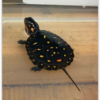
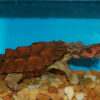






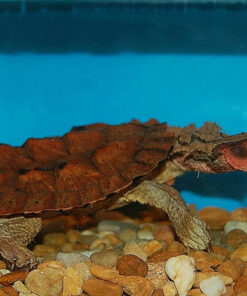
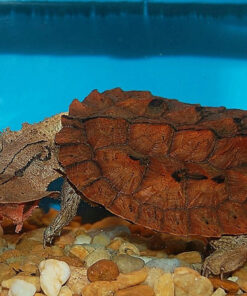

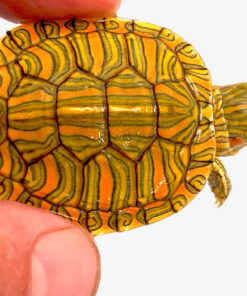
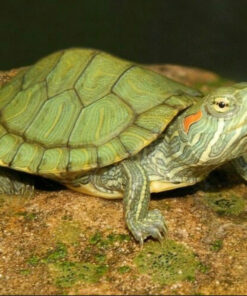
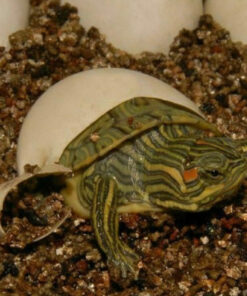
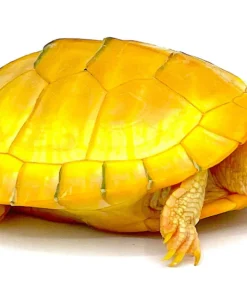
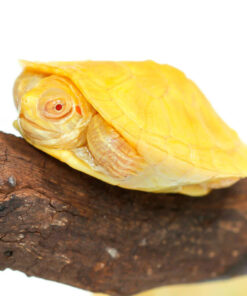
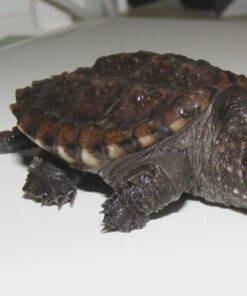

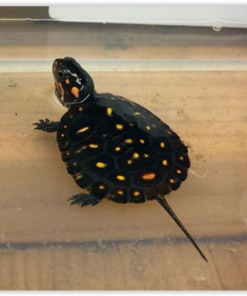
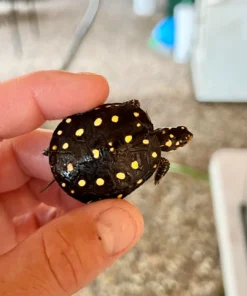
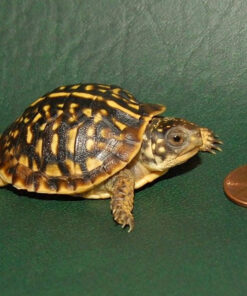

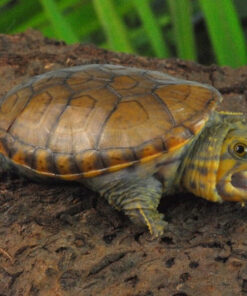

Reviews
There are no reviews yet.